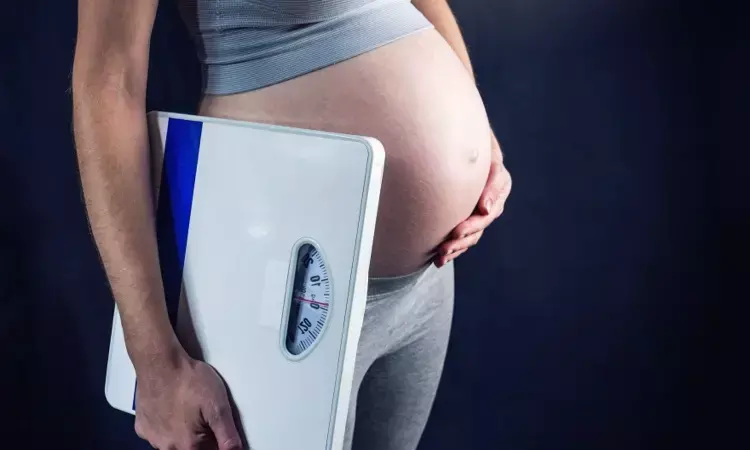- Home
- Medical news & Guidelines
- Anesthesiology
- Cardiology and CTVS
- Critical Care
- Dentistry
- Dermatology
- Diabetes and Endocrinology
- ENT
- Gastroenterology
- Medicine
- Nephrology
- Neurology
- Obstretics-Gynaecology
- Oncology
- Ophthalmology
- Orthopaedics
- Pediatrics-Neonatology
- Psychiatry
- Pulmonology
- Radiology
- Surgery
- Urology
- Laboratory Medicine
- Diet
- Nursing
- Paramedical
- Physiotherapy
- Health news
- Fact Check
- Bone Health Fact Check
- Brain Health Fact Check
- Cancer Related Fact Check
- Child Care Fact Check
- Dental and oral health fact check
- Diabetes and metabolic health fact check
- Diet and Nutrition Fact Check
- Eye and ENT Care Fact Check
- Fitness fact check
- Gut health fact check
- Heart health fact check
- Kidney health fact check
- Medical education fact check
- Men's health fact check
- Respiratory fact check
- Skin and hair care fact check
- Vaccine and Immunization fact check
- Women's health fact check
- AYUSH
- State News
- Andaman and Nicobar Islands
- Andhra Pradesh
- Arunachal Pradesh
- Assam
- Bihar
- Chandigarh
- Chattisgarh
- Dadra and Nagar Haveli
- Daman and Diu
- Delhi
- Goa
- Gujarat
- Haryana
- Himachal Pradesh
- Jammu & Kashmir
- Jharkhand
- Karnataka
- Kerala
- Ladakh
- Lakshadweep
- Madhya Pradesh
- Maharashtra
- Manipur
- Meghalaya
- Mizoram
- Nagaland
- Odisha
- Puducherry
- Punjab
- Rajasthan
- Sikkim
- Tamil Nadu
- Telangana
- Tripura
- Uttar Pradesh
- Uttrakhand
- West Bengal
- Medical Education
- Industry
Higher BMI Linked to Longer Fetal Expulsion Times in Second and Third Trimester Medication Abortions: Study

USA: A recent study sheds light on the relationship between Body Mass Index (BMI) and the duration of fetal expulsion in individuals undergoing medication-induced abortion during the second and third trimesters.
The findings, published in the journal Contraception, suggest that individuals with a BMI over 30 experience significantly longer times for fetal expulsion compared to those with lower BMI. These insights may prompt adjustments to reproductive healthcare induction protocols and counseling practices.
"Among individuals undergoing medication abortion beyond 13 weeks, those with a BMI ≥30 were 6.62 times more likely to experience a time to expulsion exceeding 24 hours. The median expulsion time for individuals with a BMI ≥30 was 20 hours, compared to 12 hours for those with a BMI <25," the researchers reported.
Megan Fuerst, Oregon Health & Science University, Department of Family Planning, Portland Oregon, and colleagues aimed to investigate the relationship between BMI, kg/m², and the duration of fetal expulsion in individuals undergoing medication-induced abortion beyond 13 weeks of gestation.
For this purpose, the researchers conducted a retrospective cohort study focusing on singleton pregnancies undergoing medication-induced abortion beyond 13 weeks of gestation at a single academic medical center between 2020 and 2024.
The primary outcome measured was the time to fetal expulsion. Participants were grouped into three BMI categories: <25, 25–29.9, and ≥30. The researchers compared the median time to fetal expulsion across these groups and employed multivariable logistic regression models to analyze the association between BMI and prolonged time to delivery, defined as 24 hours or more.
The following were the key findings of the study:
• Four-hundred twenty eight charts were reviewed, and 382 patients met the inclusion criteria, with an average gestational duration of 25.0 weeks.
• Of these, 162 patients (42.4%) had a BMI greater than 30.
• The BMI 25–29.9 group included 120 individuals (31.4%), and the BMI <25 group comprised 100 individuals (26.2%).
• Median time to fetal expulsion varied significantly across BMI categories:
• 12 hours for BMI <25.
• 14 h0urs for BMI 25–29.9.
• 20 hours for BMI ≥30.
• After adjusting for gestational duration, cesarean section history, and prior vaginal deliveries, individuals with a BMI ≥30 had 6.62 times the odds of experiencing a time to expulsion ≥24 hours compared to those with a BMI <25.
"Our findings indicate that individuals with a BMI >30 experience significantly longer times to fetal expulsion during the second and third trimesters. This suggests a need to tailor induction protocols and counseling practices to account for body size," the researchers concluded.
Reference:
Fuerst, M., Prewitt, K. C., Garg, B., Ramanadhan, S., & Han, L. (2024). Association of Body Mass Index on time to fetal expulsion for individuals undergoing medication abortion over 13 weeks gestational duration. Contraception, 110752. https://doi.org/10.1016/j.contraception.2024.110752
Dr Kamal Kant Kohli-MBBS, DTCD- a chest specialist with more than 30 years of practice and a flair for writing clinical articles, Dr Kamal Kant Kohli joined Medical Dialogues as a Chief Editor of Medical News. Besides writing articles, as an editor, he proofreads and verifies all the medical content published on Medical Dialogues including those coming from journals, studies,medical conferences,guidelines etc. Email: drkohli@medicaldialogues.in. Contact no. 011-43720751


